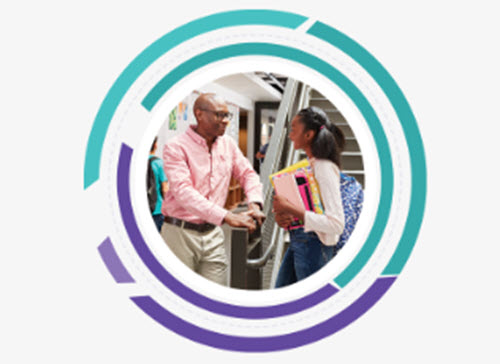RICHFIELD, Ohio /PRNewswire-PRWeb/ — Navigate360, the nation’s leader in K–12 school safety and student wellness solutions, proudly announces the official validation and endorsement of their Suite360 social-emotional learning solution by LearnPlatform. This achievement underscores Suite360’s effectiveness in meeting the stringent criteria set by the Every Student Succeeds Act (ESSA) Tier IV, thus fulfilling the evidence-based intervention prerequisites necessary for educational districts to procure the solution using allocated ESSA funds.
Amid a nationwide situation where students are grappling with various challenges, a recent study conducted by Navigate360 unveils a concerning reality—educators are encountering difficulties in adequately addressing the well-being of their students. Additionally, a staggering 84% of educators express that their students are lagging in self-regulation and interpersonal skills compared to the pre-COVID-19 era. At the same time, the landscape of swiftly advancing education technology coupled with the ever-evolving landscape of social-emotional curricula making it harder than ever for educational leaders to determine what truly makes a difference in schools and districts. Nevertheless, the convergence of appropriate technology and comprehensive social-emotional curricula has the potential to wield a substantial influence on the teaching and learning processes.
“Suite360 stands as a beacon of transformative change, offering educational leaders an empowering tool to cultivate essential social-emotional learning skills in their students. With a meticulously curated collection of 1,800 research-backed lessons, Suite360 aligns with the Collaborative for Academic Social and Emotional Learning (CASEL), enabling students to develop vital proficiencies such as self-awareness, social awareness and responsible decision-making. This endorsement by LearnPlatform reaffirms Suite360’s pivotal role in reshaping education, equipping educators to create a positive learning environment where students’ well-being thrives alongside their academic success,” said JP Guilbault, CEO at Navigate360.
“When we better understand the needs of our students, we can create a positive learning environment where students feel supported and heard. Our students’ mental health is connected to their overall academic success, graduation rates, absences and so much more—making this such an important conversation in education,” said Melissa Ragan, Chief Learning Officer at Navigate360. “The principles set forth by ESSA advocate for the conscientious utilization of the school improvement cycle and ESSA’s four tiers of evidence. These are tools employed to discern solutions that align with the specific requirements of student populations. Notably, Tier IV, referred to as “Demonstrates a Rationale,” mandates a clear logical model or theory of action, solid research backing and ongoing efforts by educational agencies or research bodies to evaluate effectiveness. The validation of Suite360 by LearnPlatform serves as a confirmation that the solution possesses a well-defined logical foundation and satiates the requirements of ESSA’s Tier IV criteria.”
To learn more about Suite360, please visit https://www.navigate360.com/safety-solutions/social-emotional-learning-for-students/.
About Navigate360
Navigate360 is the premier provider of safety solutions for schools, leading to enhanced student well-being. With more than 20 years of experience, our multifaceted, layered approach—providing everything from curricula that support positive behavior and self-image to campus physical safety and personnel training—focuses on incident prevention. Currently, more than 14 million students are attending schools using Navigate360 solutions. To learn more, visit https://www.navigate360.com.
SOURCE Navigate360

